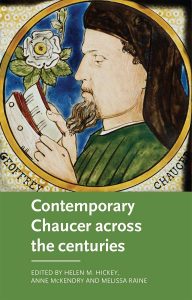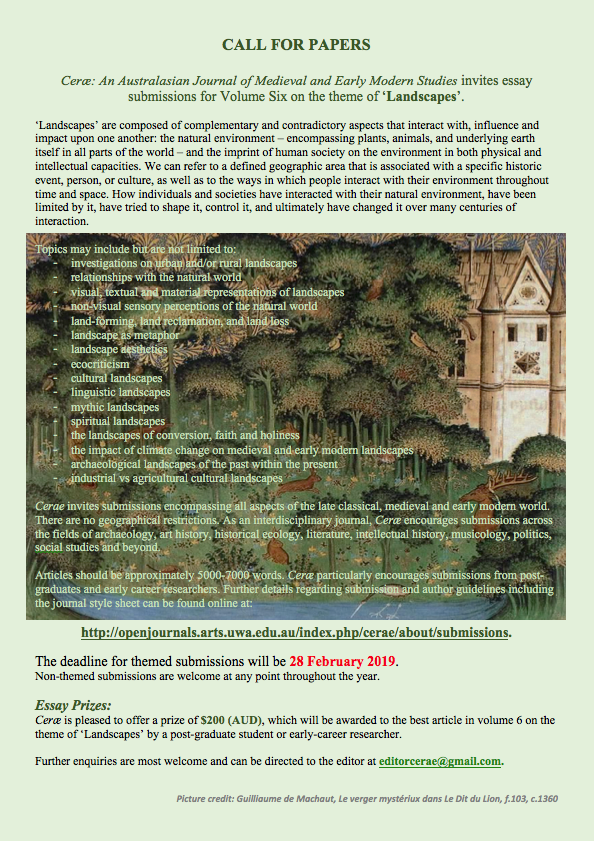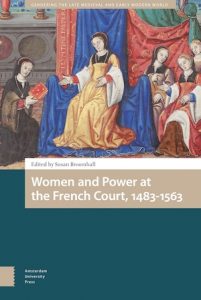The French Journal of Medieval English Studies Etudes Médiévales Anglaises is seeking submissions for its 94th issue, focusing on the notion of “space”. The papers, written in French or English, should be submitted by 30 May, 2019 (see more information below). Authors who wish to submit a paper are advised to get in touch and submit a title with a brief description of content as soon as convenient.
Though space is by no means a medieval concept (in fourteenth-century use, the word referred primarily to time, or to an interval between two objects, rather than to the abstract idea of an extended area that can be filled or crossed), the concept in its complexity has over the last decades gained considerable critical importance in medieval studies. Medievalists have always paid attention to spatial questions, namely in the shape of inquiries into the location of national or religious communities, into medieval practices of pilgrimages, processions and travels, or into the symbolic associations of various places (the forest, the garden, the castle…). However, “critical reflection on spatial concepts and categories” has developed more recently with the rise of cultural geography in the 1970s (Weiss & Salih, 2012, xv), and subsequent postmodern explorations of the ideological assumptions which defined and produced medieval urban and rural spaces, places of power and sites of piety and fashioned social and gendered spaces within these wider areas.
In this context, scholars set out to explore the “heterogeneity and flux of medieval spatial paradigms” (Cohen & Madeline, 2014, 7). Interdisciplinary approaches flourished, as scholars were drawing together geographical, literary and cultural studies. A renewed awareness of the importance of networks which extend beyond “national” identities led to a re-appraisal of the formation of Europe (Wallace, 2016), while readings drawing on post-colonial theory also re-examined medieval discourses on the other, whether inside or outside Europe (Conklin-Akbari, 2009). Interest in spatial studies also fostered analyses of “topographies of power” (de Jong & Theuws, 2001) and of the organization of sacred and secular spaces, in particular in relation to medieval assumptions about social and gender divisions (Gilchrist, 1994). In more recent years, ecocriticism has helped diversify the perspective on space by opening critical discourse to preoccupations with nature (Cohen, 2015).
A pervasive, multifaceted concept in medieval studies, space offers insight into countless aspects of medieval society, from political institutions and the staging of power to rising attempts at defining individuality, from archaeological studies of social spaces to literary approaches of imaginary cartographies.
Etudes Médiévales Anglaises invites papers from all disciplinary backgrounds on medieval conceptions and practices of space in the British Isles, including:
- Conceptualising space
- Medieval astronomical conceptions of the world.
- The British contribution to the rise of geography and cartography.
- What is a kingdom? Attempts at defining kingdoms, namely in the context of shifting territorial extension.
- Forming a sense of community (Christendom, national identity) in the Middle Ages.
- Fashioning space
- Bordering territory in the British Isles in the Middle Ages: techniques, theories and practices.
- Urban, rural, architectural ways of fashioning space; their social, political, religious and cultural implications.
- The rise of the individual and the advent of intimacy.
- Economic networks, insular and European; their influences on daily life in diverse contexts.
- Religious and cultural networks.
- Medieval practices of space
- Social and religious practices: processions, pilgrimages and travels, either real or imagined.
- Gendered practices of public and private space in the British Middle Ages.
- Space and war: how did British knights envisage the necessary military engagement with space?
- The sea: medieval practices and representation of seafaring in the context of medieval conceptions of the sea, real or imagined.
- The forest and the “wilderness”: places outside social order, which are often fraught with danger and / or prove the loci for spiritual experience (hermitages) or adventure (namely in the case of encounters with fairy and other supernatural beings)
Submission information
The papers, written in English or in French, must be sent before 30 May, 2019 to Fanny Moghaddassi f.moghaddassi@unistra.fr . Etudes Médiévales Anglaises uses double-blind peer review. The stylesheet to be used may be found on our website: https://amaes.jimdo.com/submit-a-paper/
References:
COHEN Jeffrey J., Stone: An Ecology of the Inhuman, University of Minnesota Press, 2015.
COHEN Meredith and MADELINE Fanny, eds, Space in the Medieval West. Places, Territories and Imagined Geographies, Routledge, 2014.
CONKLIN AKBARI, Suzanne, Idols in the East, European Representations of Islam and the Orient, 1100-1450, Cornell University Press, 2009.
Construction de l’espace au Moyen Âge : Pratiques et représentations, Colloque de la SHMESP (Mulhouse, 2006), Presses universitaires de la Sorbonne, 2007.
DE JONG Mayke and THEUWS Frans, eds., Topographies of Power in the Early Middle Ages, Brill, Transformation of the Roman World, 6, 2001.
GAUTIER DALCHE Patrick, L’Espace géographique au Moyen Âge¸ Sismel Edizioni del Galluzo, Micrologus’ Library, 57, 2013.
GILCHRIST Roberta, Gender and Material Culture, The Archaelogy of Religious Women, Routledge, 1994.
HANAWALT Barbara A. & KOLBIALKA Michal, Medieval Practices of Space, University of Minessota Press, 2000.
Uomo e spazio nell alto medioevo, Settimane Di Studio Del Centro Italiano di Studi Sull’ Alto Medioevo, Presso La Sede dell Centro, 2002.
WALLACE David, ed., Europe: A Literary History, 1348-1418, Oxford University Press, 2 vol., 2016.
WEISS Julian and SALIH Sarah, eds., Locating the Middle Ages, The Spaces and Places of Medieval Culture, Boydell & Brewer, King’s College London Centre for Late Antique and Medieval Studies, 2012.
ZUMTHOR Paul, La Mesure du monde, Représentation de l’espace au Moyen Âge, Seuil, 1993.



